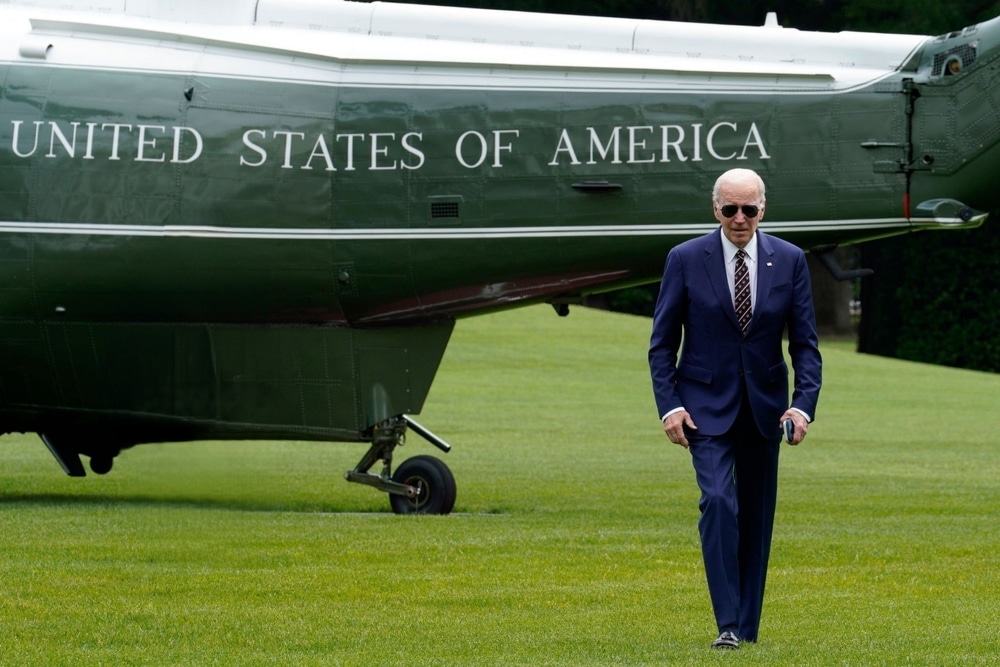
Our close and beneficial friendship with the Americans has morphed in the past years into dependance. This state of affairs is harmful to Israel and to its relations with the United States. In order to protect our interests, and surprisingly, those of the US as well, Israel must return to a pillar concept of Zionism: independence
Does the US support Israel? It depends
In my undergraduate studies I majored in US History and Political Sciences, with the desire to obtain a strong grasp of Israel’s role in the Middle East, and with the understanding that this would demand learning about the United States’ influence in the international diplomatic arena, and particularly in the Middle East.
Although it is now common knowledge that the relations between Israel and the US are deeply strategic, and that America is without doubt Israel’s most staunch ally, it is important to remember that this was not always true.
In November 1947, when the enormity of the slaughter of Jews by the Nazis and atrocities of the Holocaust were undisputable, and the partition plan of Israel into two states was submitted to a vote at the UN, the American administration was undecided on whether it wished to support the existence of a Jewish state between the Jordan River and the sea. The Pentagon’s clear recommendation was not to support the establishment of the State of Israel, since this would without a doubt prove to be detrimental to the relations with its powerful and rich Arab allies.
At the vote in the UN’s General Assembly, the US had subsequentially voted in favor of a State of Israel, among others due to pressure from the American Jewish community; however, in the wake of Israel’s War of Independence, the Americans had begun pushing the young country to withdraw from the Negev in the south and the Galilee in the north seized during Israel’s defense against the attack by Arab countries. Nonetheless, in an admirable and courageous act of leadership, then Prime Minister David Ben Gurion refused the US’s request, leading to the US arms embargo on Israel.
So, when did the two countries begin establishing close relations?
Suni oil, Iranian technology
One thing that is material to understand in regards to America’s policy: being a democracy, a crucial consideration in the American administration politics is always the next elections. Thus, American internal politics governs the administration’s decision-making in virtually every area, not least in its foreign affairs. This is evident in America’s policies in the international arena, where it prioritizes relations with strong and rich countries. Shared democratic values are not the sole grounds for relations with the US, and a crucial factor in this equation of relations is the contribution a country might make to the interests of America.
Let us take a quick look at America’s relations with the Kingdome of Saudia Arabia and Iran. The Suni superpower and the large Shi’ite state are geographically close, with only the Persian Golf separating the two. However, they are sworn enemies. KSA opposes Iran –one may argue that no less than Israel – and views it as its arch-enemy. The US is a component of this dynamics.
At the onset of the Islamic Revolution in Iran in 1978-79, the Iranian Republic, under the tutelage of the Ayatollah Khomeini, had place the US at the top of its enemy list, on account of its close relations with the Shah and the previous Pahlavi government, and its role in the modernization effort of that regime. From that point onward, the US had cultivated for over four decades, warm relations with the KSA, the leader of the Suni world, which at that time controlled the global energy market with is huge reserves of fossil fuel.
However, during the Obama administration, a historic development occurred: the US achieved energy independence thanks to its production of oil from shale rock – a sediment rock which exists in abundance in the US. The fracking production technology not only freed the US from the need to purchase oil from other countries, but allows it to export the commodity as well.
This turn of events led Obama to realize two things: first, relations with the KSA are no longer a priority, which consequentially turned the Kingdome from strategic ally to rival; secondly, Iran has proven itself as a noteworthy technological opponent that is building up formidable military prowess. The result of Obama’s understandings was the Joint Comprehensive Plan of Action (JCPOA) nuclear agreement, which among others placed Israel’s security interest at great peril.
Shared values can only do so much
Despite what we would like to believe, America’s relations with Israel are based on interests. There is no question regarding the importance of the two countries’ shared values and Israel’s choice to be among the world’s democracies. However, beyond shared values, policy-making is greatly guided by the interests of the ally country or super power. Therefore, this partnership depends no less on Israel’s power than its values. Thus for example, the most significant advance in the relations between the US and Israel occurred following Israel’s display of military might in the Six Day War, and the relations between the two have since matured into a warm friendship, as Israel had increased its scientific, technological and military prowess.
Similarly to values, a country’s interests can be attributed either to the relatively short-term doctrine of a specific president or administration, or to a country’s long-term interests and goals. It follows that when Israel views its relations with the US, it must take America’s long-term interests into consideration, rather than the interests of a specific president at a specific point in time. Two such long-term interests became evident during President Biden’s latest visit to Israel.
In addition to pledging support to Israel’s cause in the current confrontation with Hamas in Gaza, Biden focused on two main issues.
The first was the issue of science and technology. The US nowadays faces fierce competition from the East. China, India. Russia and even Iran are posing a formidable challenge in areas such as AI, quantum mechanics, hyper-sonic weapons and laser technology. America’s ability to counterweight these threats depends to a great extent on its military scientific and technological partnership with Israel. The Israeli creativity, resourcefulness and daring, coupled with its ability and willingness to test technologies on the battlefield, makes it an invaluable partner for development, and this constitutes a crucial cornerstone of the deep cooperation between the two.
The second issue Biden touched upon was economy and commerce. During his visit to Israel, President Biden held video conferences with representatives from India and the UAE, and discussed the prospects of a new global trade route, which would run overland from India through the UAE and through the KSA to Israel. Thus, rather than traversing the Red Sea under constant threat from Africa and Yemen, a new trade route would run overland to the Mediterranean Ocean. This vision, which is contingent on the normalization of Israel-Saudi relations, would turn Israel into a global trade hub.
Zionism is the highest form of independence for Israel
Sadly, a byproduct of the warm relations with the US is a sense of complacency on part of Israel, perpetuating the belief that America’s support is forever guaranteed on the premise of shared values, and as such, is not affected by the dynamics of America’s foreign interests.
Throughout the years, Israel had been taking America’s aid for granted to the extent that it had grown dependent on it. Presently, there is not one Israeli military project in which the US is not involved, affording financial support in return for the distribution of Israel’s proprietary technologies. We also see unjustified dependance on the munitions provided to Israel by the US. There seems to be no valid reason why Israel cannot produce its own munitions, aside from the fact that it had become accustomed to receiving them from America.
In addition, it is important to understand that the scale of economic aid itself from the US is also no justification for Israel’s dependence – if Israel would invest this money in its own industry, it would return the investment, possibly with gains, Today, even pro-Israel elements in the US raise an eyebrow at the sheer scale of financial aid it receives from the US. As a developed country with a stable economy we can – and must – be independent.
In fact, economic and security independence are pillars of Zionism. The State of Israel was established to provide the Jewish people with a home that they would autonomously defend. This assurance is the basis for the Zionistic vision and the justification for the existence of the State of Israel. But to realize this in full, Israel must wean itself from America’s aid and ensure that it can defend itself with its own technologies, without the need for approval from foreign factors.
Paradoxically, a more independent Israel would serve not only to bolster the country itself but also tighten its relations with the US. As mentioned earlier, the US is drawn to powerful countries; in order to preserve its interest in Israel and ensure its friendship decades into the future, Israel must not lose its military might, which allowed it 56 years ago to prevail over three Arab armies in only six days, despite the US arms embargo.
The US does not need another protectorate. It needs a partner. Israel can and should be that partner. In order to bolster its friendship with the US, Israel must continue to build up its military might, establish its independence in a multitude of areas, and prove itself to the Americans. Only through shared long-term interests will the relations between Israel and the US weather the challenges that lay ahead.




